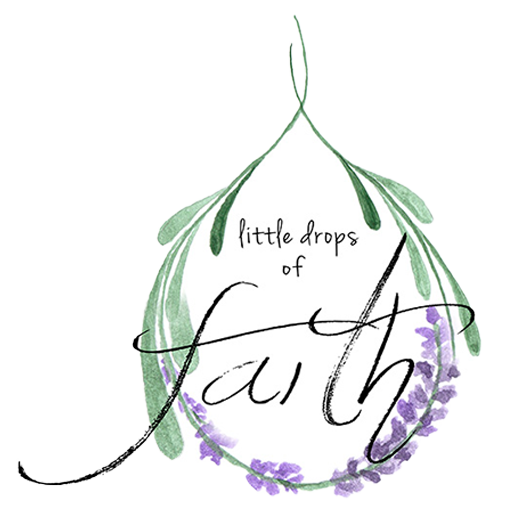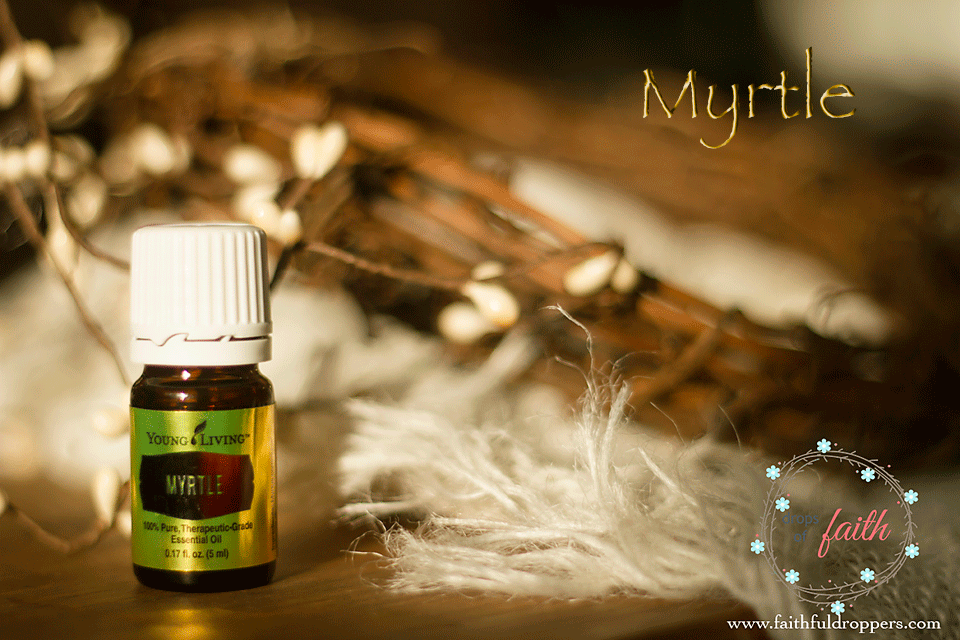Biblical References and the meaning of “Myrtle”
Esther 2:7—Zechariah 1:8, 1:11—Nehemiah 8:15—Isaiah 41:19, 55:13
“Fruit trees of all kinds will grow on both banks of the river. Their leaves will not wither, nor will their fruit fail. Every month they will bear, because the water from the sanctuary flows to them. Their fruit will serve for food and their leaves for healing.” —Ezekiel 47:12
When I first heard the name Myrtle my mind instantly began drawing a mental image of an elderly woman: gray hair, wrinkled skin, slightly humped back, and you better believe with a name like Myrtle her attitude lacked something to be desired and small children were afraid of her. Let me just say that my mental image has totally changed. After digging in to the Bible and pulling reference after reference to the “Myrtle tree, or just Myrtle” I can now say that Myrtle is unlike anything I had imagined. She is kind, soft and gentle, she has an unshakeable faith in The Lord, and when you lean in to hug her she has a pleasant floral aroma. Instead of children fearing her they rush to her for the sweet treats that she carries in her pockets. I don’t know what you had pictured when you heard the name Myrtle, if it was similar to my first uneducated image or more of my biblical image, but lets take a trip through some verses in the Bible and dig a little deeper in to the word and show you how my image was changed.
It all starts with Esther. When reading the story of Esther you will not see the mention of myrtle. But, after some research I discovered that “Hadassah” in Hewbrew means Myrtle. The Hebrew word Hadas means Myrtle Tree, the ending “sah” makes it feminine leaving us with the name Hadassah. The myrtle tree is know to have a pleasant fragrance and Rabbi Edels stated that “man is like a tree of the field” therefore the righteous are called myrtles, likened to a good tree with a pleasant smell. Esther was called Hadassah because the righteous are called myrtles. Like in Zechariah 1:8, “And he was standing around the myrtles” in one bible commentary it is thought that the myrtles are referring to the prophets Hananiah, Mishael, and Azariah (which are actually Shadrach, Meshach, and Abednego) using their given names at circumcision which all had meaning that represented The Lord. Those three prophets were righteous and so referred to as myrtles. It is also stated that myrtles have a sweet smell and a bitter taste, so too Esther was good and listened (“sweet”) to the righteous Mordechai, and was adverse (“bitter”) to the wicked Haman. The name Esther in Hebrew is derived from “Hester” meaning hiddenness. Esther was referred to by both names, Hadassah and Esther—Opposites. Calling her by both names represents the self-sacrifice she displayed in order to save the Jewish Nation. A righteous woman, brought Godliness down to the physical world, where Godliness is concealed.
In Nehemiah chapter eight verse fifteen Ezra is reading from The Book of the Law of Moses, which the Lord had commanded for Israel. “and that they should proclaim this word and spread it throughout their towns and in Jerusalem: “Go out into the hill country and bring back branches from olive and wild olive trees, and from myrtles, palms and shade trees, to make booths—as it is written.” Now that we have the meaning of myrtle, “righteous”, when we read that verse we know that they were commanded to bring back righteous branches for to build their booths. They were commanded to build these booths and live in them for the seven days during the seventh month to celebrate the feast of booths. “You shall dwell in booths for seven days … that your generations may know that I made the people of Israel dwell in booths when I brought them out of the land of Egypt: I am the Lord your God” Leviticus 23:42-43. And on the eighth day was a solemn assembly. So when the law was written in Leviticus they were commanded to bring back righteous branches (myrtle among others) to build their booths. Lets look in to the Feast of Booths for a minute. The Feast of Booths is one of the most joyous feasts that was part of the old covenant worship. This festival was the last of the fall festivals and was in time for the harvest of the grapes and olives, which made for a grand celebration. They took time at this festival to thank the Lord for his provision and to remember the journey from Egypt to Canaan. God’s provision leads me to my final reference.
In the book of Isaiah we see mention of the myrtle in two chapters, forty one and fifty five. In chapter forty one we are learning of God’s provision, we shall not be afraid. “(He) I will put in the desert the cedar and the acacia, the myrtle and the olive. I will set pines in the wasteland, the fir and the cypress together. So the people may see and know, may consider and understand, that the hand of the Lord has done this, that the Holy One of Israel has created it (v 19-20). The Lord is telling us that we shall not thirst for he has provided water (v 17) and we shall not fear for he will help us (v 14). He will protect us and provide for us, and in the many ways he will give us provision he will also give us the myrtle tree. In chapter fifty five it is telling of the Lord’s will and that He will accomplish what He set forth. And then you read the last few verses in chapter fifty five and He gives us an illustration. God is giving us a prophetic picture of His promised blessing. “Instead of the thorn bush will grow the pine (cypress, depending on translation) tree, and instead of briers the myrtle will grow. This will be for the Lord’s renown, for an everlasting sign, which will not be destroyed.” v 13. The Lord promises and gives us the vision of removing the thorn bush and placing the tree and removing the brier and placing the myrtle, the luscious, righteous myrtle.
After researching and discovering all the places that the myrtle is referenced and the meanings behind the word I was blown away. I had always thought of Frankincense and Myrrh as Holy oils but after reading and learning I will now consider Myrtle to be in such a high place of honor as well. The “righteous” myrtle oil will become a part of my oil collection and I always have this oil on hand. Stay tuned for all the benefits and uses of this amazing oil!
Jessica Vice from London, Kentucky
#2536150
[email protected]

